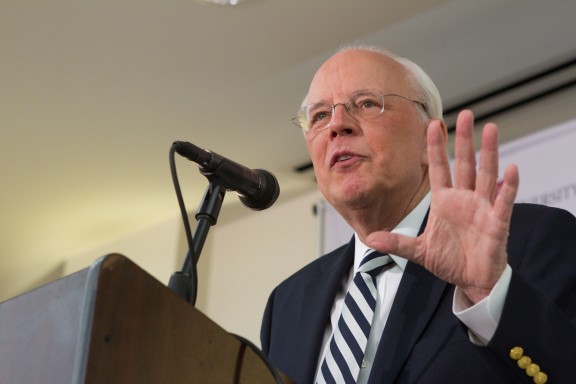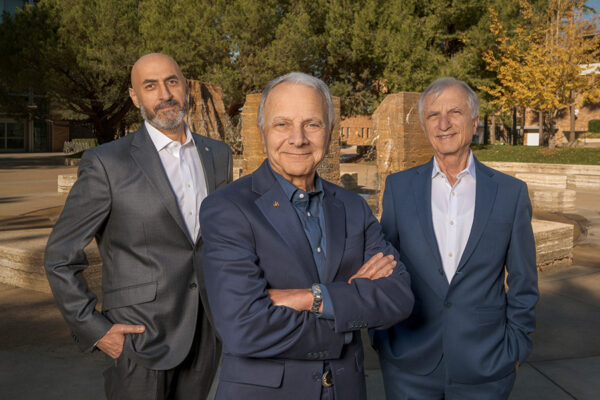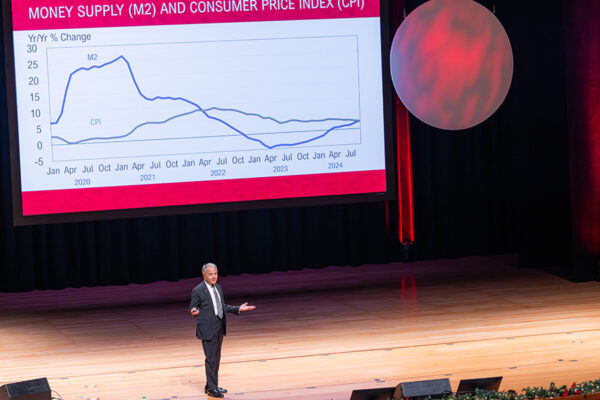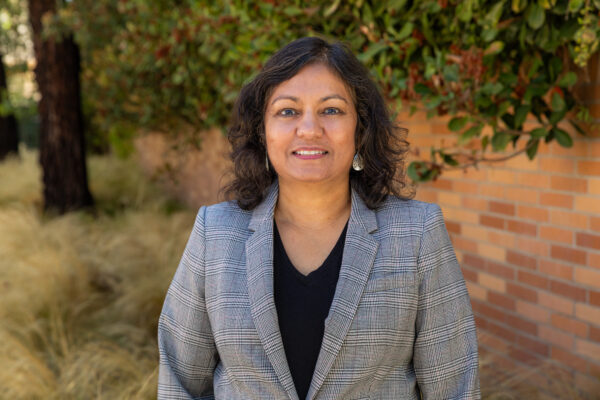The 1977 television clip of former President Nixon telling interviewer David Frost that “when the president does it that means it’s not illegal” provoked laughter in the audience gathered Thursday at Chapman University to hear John W. Dean discuss the legal legacies of Watergate.

John W. Dean at School of Law symposium.
Yes, it’s hard to imagine today, given that Watergate generated sweeping legal and political reforms as well as an evaluation of presidential powers and the law. But as the clip ended and the laughter faded, Dean, the former White House counsel who served four months in prison for his role in the Watergate cover-up, suggested that abuse of power is not all in the history books.
“Of course there is some legal justification for the position Nixon was taking. He was drawing on Lincoln. He was drawing on FDR. And to me, sadly, the Nixonian view might be even more prominent in the aftermath of 9/11, where things like torture and our violation — blatant violation — of our international treaties have become the norm rather than the exception,” Dean said.
Dean’s wide-ranging talk was part law lecture, part history lesson, with several news and television clips from his Senate testimony played on an overhead screen for the audience attending the free talk sponsored by Chapman School of Law. It was the first event in a two-day program the law school is hosting to mark the 40
th
anniversary of the Watergate break-ins and to study the scandal’s legal legacies. Dean was joined by Chapman University law professor Ronald Rotunda, who served as assistant majority counsel for the Watergate Committee. Professor Rotunda added first-hand accounts of the investigation and the ethics reforms that followed, and lawyer and historian Jim Robenault moderated.
The commemoration continues with a law symposium exploring the legal legacy of Watergate. Titled “The 40th Anniversary of Watergate: A Commemoration of the Rule of Law,” the symposium kicks off tonight, Thursday, Jan. 26, with a welcome dinner that will feature Jill Wine-Banks,a former assistant Watergate prosecutor. Wine-Banks was one of the only women involved in the Watergate investigation and as such will be speaking about her experience in this role as well as what the historical event means for women 40 years later.
A full schedule of other symposium panels and talks is scheduled for Friday, Jan. 27. In addition to Dean, program participants will include Alexander Butterfield, Rotunda, Chapman Law Dean Tom Campbell, Scott Armstrong (a staff member of the Senate Watergate Committee and former
Washington Post
journalist) and a roster of visiting law professors from across the nation. Topics will include “Obstruction of Justice: Does History Have it Wrong?” and Dean’s lunchtime keynote, “Watergate’s Unanswered Questions.”
Symposium pricing is as follows: Welcome dinner only, $75; symposium only, including luncheon, $75; welcome dinner and symposium, $125.
The symposium is presented by Chapman Law Review, a student-run scholarly journal published by Chapman University School of Law. Symposium registration is required by filling out an online form
here
and calling 714-628-2605.
The Friday symposium will also be webcast live at
www.chapman.edu/law<https://www.chapman.edu/law
.
Chapman Newsroom
Main Menu >
Media Contacts
Office of Public Relations
PR@chapman.edu
Strategic Marketing and Communications
1 University Drive
Orange, CA 92866
Contact Us
Strategic Marketing and Communications
1 University Drive
Orange, CA 92866
Contact Us
Newsroom Site
Your Header Sidebar area is currently empty. Hurry up and add some widgets.




Add comment